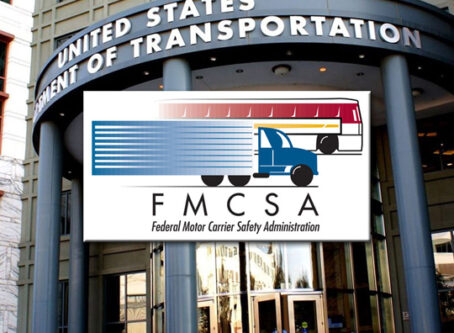A business perspective on rising diesel prices
With diesel prices and in many other ways, the business of trucking is multifaceted.
Owner-operators, long-haul drivers, flatbed truckers, tankers and heavy haulers may each approach their business a very different way.
What might be good for one, may not be good for the other and vice versa.
Land Line spoke to owner-operator Gary Frederick of GNR Transport Inc., as well as Dimitre Kirilov, president and CEO of Montway Auto Transport for their perspective on how record diesel prices have affected business.
Montway Auto Transport is one of the largest auto transport companies in the country, according to the company website. The Schaumburg, Ill.-based company specializes in shipping vehicles for individuals as well as businesses across the country. Auto dealerships, military personnel and online car buyers are among the company’s clientele.
Kirilov has 15 years of logistics experience and started his career in the trucking industry.
Frederick owns two trucks and typically runs coast-to-coast from his home base of Sebring, Fla., to Portland, Ore.
Unprecedented times
“I’ve been in business 35 years and have never seen a diesel market like this,” Frederick said. “Back in 2008, it was tough then, but there was a ceiling that you could see. If you could feel it was going to penny down or at least stay stable. My fuel bill just jumped to $4,000 over three weeks for the same trip.”
Similarly, Kirilov didn’t expect nor anticipate diesel prices reaching the levels they have this year. However, he remains positive that the market will rebound.
“By far it is the supply and demand that affect the rates more,” Kirilov said. “Diesel prices are only a portion of what actually affects the pricing for transportation.”
The increases to diesel have been significant, but increases to the company’s cost of doing business are only in the 20% range, said Kirilov.
“We have two customers: the shippers and the carriers,” he said. “It’s important they both get a fair deal. We’re only in business because of them. Our goal is to make it profitable for both of them. We’re constantly watching the market to make sure we are offering market price. At the end of the day it depends on the fleets. They need to make sure they book what is profitable for them.”
Adjusting your business when conditions necessitate is critical Frederick said.
“You have to watch what you’re spending your money on,” Frederick said. “You have to figure out your taxes, insurance costs, etc.,” Frederick said. “Do you know how much it costs you for fuel right now? It’s day-to-day, almost hour-to-hour lately. I might have to take an extra load here and there to get fuel money to go back east. Some drivers jump on every job because they have a truck to pay off. When that happens these folks don’t realize they are cheating themselves.”
Knowing how to come up with a good rate is especially important these days as is keeping your truck maintained.
“It’s hard to pull money out of your pocket, especially with costs going up, but you need to keep up on your maintenance so it doesn’t cost you more later,” Frederick said.
While Montway’s business has remained stable, Kirilov said he’s well aware of challenges others are or may be facing.
“Especially for small carriers, the market is key,” he said. “Freight has been going up steadily over the years. Overall inflation will affect the customer with prices, and diesel costs are not helping at all. Even if shipping costs don’t increase, we use fuel in other ways, like heating, machines and electricity. One way or another, the high costs will affect the market.”
Kirilov said his company’s rates are not a direct reflection of higher diesel prices.
“It’s always a negotiation, but the prices are market driven,” he said. “We don’t just say if diesel rates go up we increase the price. The market is cyclical.”
A volatile diesel market on the heels of a surge in carriers is a bad combination, according to Kirilov.
“Around 100,000 carriers came into the market last year to take advantage of extremely high demand,” he said. “During the closure (due to COVID), shippers were taking advantage of it as well. When that demand shrinks, which is happening now, they could be in trouble if their fleet is not fuel efficient enough. It also becomes much more difficult to negotiate when demand is down.”
Some 20,000 drivers got their authority in February 2022, said Fredrick. Not only does this number amp up the competition, but it can negatively affect rates.
“Trucking can be a dog-eat-dog industry, but I love the competition,” Frederick said. “However, it’s becoming inundated with brokers and loads are going to whoever will do it for the lowest amount. They are living on board freight and think the rest of us are doing that. I’m not against new people coming into the industry, but there has to be some kind of control. They’re coming in for a fast buck, and they’re not even properly trained. I’m able to stay out of that realm because I have a good relationship with the people I haul for.”
Relationships are key, whether owner-operator or one of the largest auto transporters in America.
Montway’s website says the company has built its reputation by delivering superior customer service.
Kirilov said he believes this will be key as the industry endures these higher diesel prices.
“The companies that will survive will have a good record and treat the customer right way,” he said. “If you’re in the business to make a quick buck and don’t care about the customer because there’s another one around the corner, what’s going to make you different? How you are treating the customer is going to make the difference.”
Relationships notwithstanding, Frederick is surely not alone when he assess higher diesel prices and the future.
“There’s not one thing you can put your finger on to solve this problem (diesel prices),” Frederick said. “I’m down to driving 68 mph and tell the customer upfront they’re not getting coast-to-coast service in four days anymore. Other than that, there’s nothing you can do. That’s why we’re all frustrated. I don’t know how they think we can do a job just moving a truck from place to place. I still have bills back home, and those bills are all going up. Trucking is a hard industry and a hard life. At some point in time, I’m going to have to say I’m not going to do it anymore.” LL









